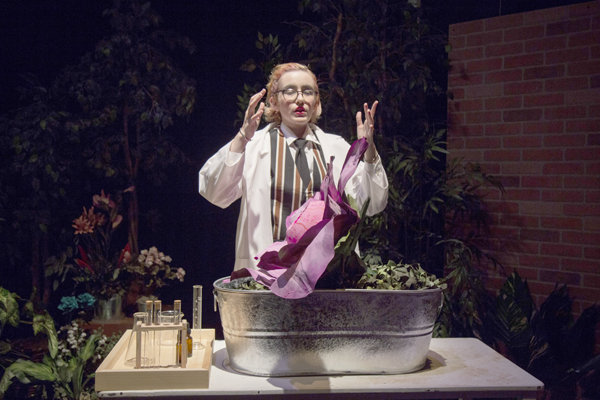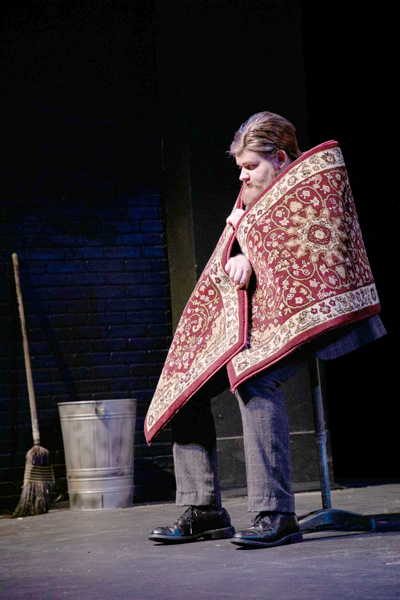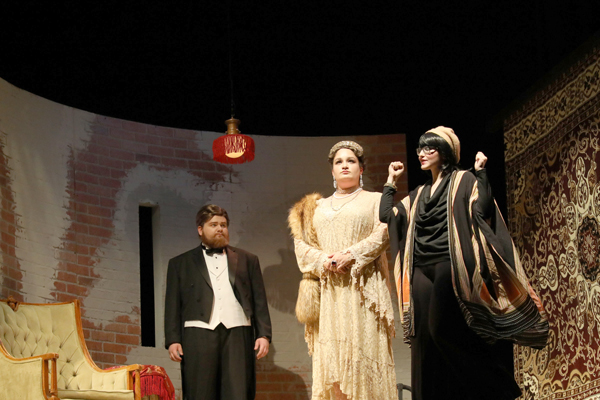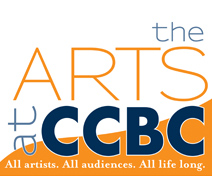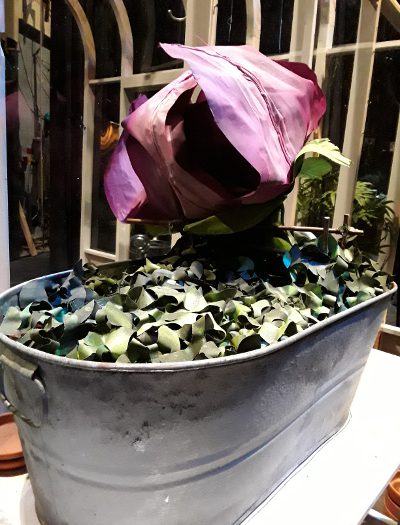It’s opening day at the F. Scott Black Theatre for Susan Glaspell’s The Verge. The cast, who all have a passion for live theater, consist of stage crew, published writers, theatre majors, and performers. Lines have been rehearsed tirelessly, direction and redirection given by Cohen Ambrose, Theatre Coordinator at CCBC. Voice and Diction Coach, Jen Ring has provided both vocal and physical exercises.
The audience is a mix of proud, supporting family members, fellow students and faculty from CCBC, and community members. There’s hushed conversations before the house lights are dimmed about the plot of the play, some are confused and others totally relating, explaining they see how this story is still relevant in our world today. Cohen Ambrose’ Director’s Note is thoughtful and passionate, in part “Glaspell’s hauntingly relevant play speaks to a world that still has not yet learned that women’s bodies are their own, not the property of men to use, manipulate, adjust and “hold into forms moulded” by them. When will we stop whistling, calling, glancing and grabbing?” (Read Cohen’s entire note.)
NJ Saroff, who has the lead role as Claire Archer, relates to her character, they both have a lot of core values that have been impacted by life’s upheavals, they’re both very trusting of the world at first glance but still suspect and see deliberate injustices that have remained since this play was first written in 1921. NJ says Claire and she finds it important to end the injustices and fight. Tate Erickson, as Harry Archer, says Harry is most like him by the way he likes what he likes and it’s hard to change his mind. Among the differences, Harry is super uptight and Tate tries to be laid back when things don’t matter, but to Harry everything matters. Adelaide, played by Claire Smith, thinks that her family is very important. Claire values her family, too, they are very close.
Some may say, as NJ points out, we don’t learn from our history. We continue to cycle back into patterns and repeat it, a source of frustration for both NJ and her character. While Claire Archer may feel caged and trying to break free of the unfair expectations placed on her, Harry Archer seems to be a liberal man in the 1920’s. He’s not jealous of his wife only having guy friends, Tate explains. He even took her flying when she was still pregnant (South West won’t even let you do that)! On the other hand, he is incapable of reading people and situations. Claire Smith says she admires Adelaide for how much she cares about people in her life but doesn’t like how she tries to fit her sister into society and not accept her for who she is.
There are always differences of opinion and how people will relate to a performance, especially when dealing with life situations. Tate, as a trained actor, has been looking at this play through the eyes of Harry, he feel that’s my job. He thinks every play is relevant at any time. He says he’s sure other people would connect this to the me-too movement or the women’s marches but feels like they’re different and that’s just his opinion. He loves how theatre makes people feel different things.
Both NJ and Claire Smith consider themselves to be feminist. For NJ this has been a self revelation over time. She feels that with the inequalities that are still so present, it is important to be a feminist. NJ says there are so many problems in our society there’s almost a complete need to start over because it’s become a chaotic vacuum where people won’t listen to anything that they don’t agree with. Claire Smith ran workshops to inspire middle and high school girls to go into computer science to help bridge the gender gap. She believes in equality, at work and in the home, people should be partners and gender shouldn’t stop you from doing things that you are passionate about, whether it is women going into the science field or men pursuing ballet. She also sees that 100 years later we are still desperately trying to break the idea of objectification of women. In 2018 we still see women as things that are there for men to mold, to control or to be there only to make them happy.
Looking to the future, NJ would like to perform in Rhynocerous by Eugene Ionesco. He’s her favorite playwright. She says his beliefs and stylized writing are similar to Susan Glaspell. One of her favorite quotes from that play is “Those who try to hold on to their individuality always meet a bad end.” And Tate would enjoy any contemporary show that’s fun yet serious. Music wise he’d either like to perform in Jesus Christ Superstar or American idiot, he’s never done a rock opera and loves the music from those shows.
“When something is a problem that is harmful to yourself and others you can’t be silent. You must take a stand.” NJ Saroff
